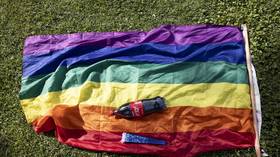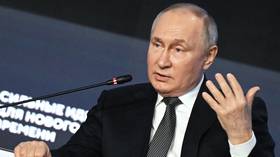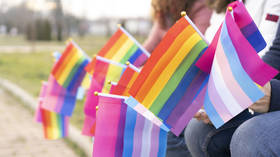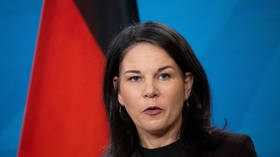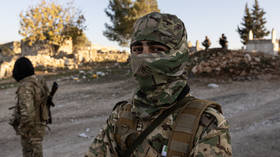Russia warns Duolingo about ‘gay propaganda’

The company behind the popular language learning application Duolingo has been warned about potentially violating Russian law, TASS reported on Wednesday. The nation’s media watchdog, Roskomnadzor, has demanded the US-based company check its educational content for “LGBT propaganda.”
Duolingo was “warned about a ban on publication of any materials promoting non-traditional sexual relations,” Roscomnadzor told TASS, adding that it has requested the makers of the app to remedy any legal violations, but have not yet received a response.
The US-based company drew the attention of the Russian authorities in early February, after a local human rights group flagged the app’s educational materials for containing LGBT characters. According to the group, school students in Siberia had to deal with the tasks provided by the app that involved descriptions of gay relations. Roskomnadzor did not confirm the claims at that time and Duolingo has issued neither a confirmation nor a denial.
Duolingo is a free language-learning online platform, launched back in 2011. By January 2024, it ranked as the world’s most popular language learning app by downloads, with over 16 million people getting it every month, according to the German data gathering platform Statista.
LGBT propaganda has been outlawed in Russia since 2022, in an expansion of the 2013 ban on such propaganda to minors. The ban applies to internet platforms, media outlets, books, movies, audio and streaming services, as well as advertising. Under the law, an entity violating the ban could face a fine between 1 million and 4 million rubles ($10,720 and $42,880, respectively). An online platform can also have access to its services restricted in Russia.
Last November last year, the Russian Supreme Court recognized the activities of the “international LGBT social movement” as “extremist.”
President Vladimir Putin clarified in February that the authorities do not have issues with what members of the community do in their personal lives, as long as they “don’t flaunt it” in public and do not involve children. He has previously spoken out against the promotion of “nontraditional sexual relations” as part of a drive to promote “family values,” which began during his third presidential term in the early 2010s.
Many observers in Russia have linked the rise of the LGBT movement to the fall in birth rates, which has accelerated across Europe over the past decade.
